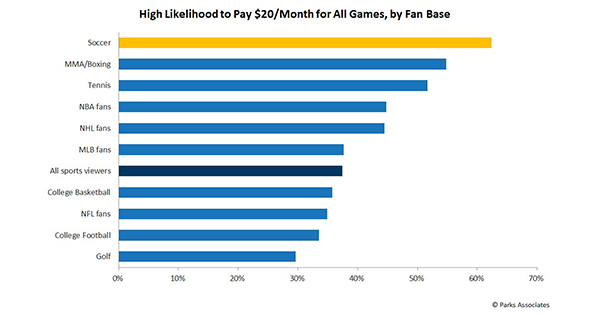COVID-19 has made it abundantly clear that it is in the employer’s best interest to keep its workforce healthy. In addition to the overarching structural changes to how people live and work, the pandemic had longer-term effects that are far more insidious: significantly worsened health conditions due to the delay of routine screenings and elective, but necessary procedures1. As a result, we are starting to see patients present with more advanced conditions than in prior years, including an increase in diagnoses of late-stage cancers. Instead of allowing this trend to continue, employers can support their workforce with increased proactive health options that promote longer, healthier lives.
How have employers shifted and what does the workplace of the future look like?
Workplace Flexibility
One way in which employers have shifted as a result of the pandemic is workplace flexibility. Many employers have now adopted this model long-term. According to a Gartner study2, 25 percent of the workforce indicated that their role allows them to work remotely, with five percent working outside of the country. Additionally, nearly 45 percent of those respondents said they have no intention of returning to the office in a full-time capacity. In the face of unprecedented flexibility for workers, CEOs should also be thinking critically about what additional innovative benefits they need to offer, to continue to attract and retain top talent.
Innovative Benefits
Innovative benefits include managing our health in a post-pandemic world. As a leader, to me this means embracing total wellness; caring for ourselves and each other in ways that extend beyond how we traditionally think of health – holistically incorporating mind, body and spirit.
The most forward-thinking companies I’ve observed provide robust support for their employees’ behavioral health. Beyond the stress which may have been lingering below the surface before, the pandemic exposed us to new levels of stress. We have navigated years of social isolation and other triggers resulting in illness, fear, anxiety, and depression. Seeing as each person’s mental health is shaped by their environment and biochemistry, many have issues that were compounded by the pandemic. The most responsible leaders in a post-pandemic world will prioritize mental health to demonstrate commitment and care for their employees, which will also foster retention.
Traditional benefit offerings such as health, 401(k)’s, vacation and paid time off, are base benefits and employees are looking for more valuable perks, in addition to these. More innovative benefit offerings such as genetic screenings that provide comprehensive, actionable healthcare allow employees to take charge of their healthcare preventively. Your genetic data is some of the most impactful information you’ll have in your lifetime. Health complications and diseases caused by genetic abnormalities are vastly more common than previously thought3. Genetic testing has the transformative potential to radically inform patient treatment plans, emphasizing highly personalized preventive care instead of reactive care with a largely one-size-fits-all approach. Currently, roughly 40 percent of healthcare costs—from premiums and deductibles to co-pays and out-of-pocket prescription costs—are the employee’s responsibility4. Employees are often presented with expensive and limited options that require them to make the best financial decisions instead of the best healthcare for them. They find themselves having to ask questions such as, “Can I afford to go to the doctor? Can I afford to take my child to urgent care?” “Can I afford this prescription?”
Healthcare disparities must be addressed
Historically, it’s been thought that only low-income individuals in under-resourced communities dealt with disparities as it relates to access and delivery of health services. However, that’s far from the case – this disparity has inched its way into the middle class, and more people who are perceived to have more resources, have less access to essential medical services and insurance5. This is compounded by the complexities of traditional benefit offerings—complexities that make most healthcare options prohibitively expensive and must be simplified.
The nation’s workforce becomes more ethnically diverse, yet our healthcare system treats them the same. There are proven genetic variations amongst different ethnic groups that lead to specific adverse health conditions. For example, African Americans are more likely to inherit sickle cell trait and other hemoglobinopathies caused by variant in hemoglobin genes. These traits can also interfere with the management of diabetes, which is also more frequent in African Americans6. Likewise, there are genetic conditions that are more frequent in almost every ethnic population studied, including Asian, Middle Eastern and Native American groups. In many cases, with proactive genetic testing, members of these populations can detect potential risks early and begin taking proactive measures.
The future
With all of these things in mind, employers can equip their workforces with precise insights to inform the best health decisions for their employees and their families. Screens such as pharmacogenomics (PGx) are especially valuable in identifying genetic biomarkers that impact how our bodies respond to different medications. Prescribing any drug, especially when being added to existing medications, can benefit from pharmacogenomics screens by identifying the drugs and doses most likely to be effective, and least likely to cause adverse reactions.
Genomic Life’s mission is to bring these services to as many employers as possible through their benefits packages. Now more than ever, we can benefit from identifying individuals who have hereditary risks, or opportunities to improve treatments. It comes down to doing the right thing – by investing in keeping our workforce healthy with more innovative benefit offerings, while keeping them cost-effective. By enabling our employees to make the best decisions for their health, our entire workforce can enjoy longevity, happiness, and flourish in a post-pandemic world.
Sources:
Centers for Disease Control and Prevention. (2021, June 30). Sharp declines in breast and cervical cancer screening. Centers for Disease Control and Prevention. Retrieved June 23, 2022, from https://www.cdc.gov/media/releases/2021/p0630-cancer-screenings.html
Holland, J., Cwintal, M., Rigas, G., Pang, A. J., Vasilevsky, C.-A., Morin, N., Ghitulescu, G., Faria, J., & Boutros, M. (2022, April 15). The impact of delaying colonoscopies during the COVID-19 pandemic on colorectal cancer detection and prevention – surgical endoscopy. SpringerLink. Retrieved June 23, 2022, from https://link.springer.com/article/10.1007/s00464-022-09211-z
Gartner_Inc. (n.d.). Insisting a mandatory return on-site can cause critical talent risks. Gartner. Retrieved June 23, 2022, from https://www.gartner.com/smarterwithgartner/returning-employees-to-an-office-consider-the-talent-risks
Impact of Genetic Diseases. Gene Therapy. (n.d.). Retrieved June 23, 2022, from https://www.thegenehome.com/basics-of-genetics/disease-examples
Kearney, A., Hamel, L., Stokes, M., & Brodie, M. (2021, December 14). Americans’ Challenges with Health Care Costs. KFF. Retrieved June 23, 2022, from https://www.kff.org/health-costs/issue-brief/americans-challenges-with-health-care-costs/
King, R. (2021, November 2). ACA coverage less affordable over time for middle-class families, study finds. Fierce Healthcare. Retrieved June 23, 2022, from https://www.fiercehealthcare.com/payer/health-affairs-aca-coverage-less-affordable-over-time-for-middle-class-families
U.S. Department of Health and Human Services. (n.d.). Sickle cell trait & other Hemoglobinopathies & Diabetes. National Institute of Diabetes and Digestive and Kidney Diseases. Retrieved June 23, 2022, from https://www.niddk.nih.gov/health-information/professionals/clinical-tools-patient-management/diabetes/sickle-cell-trait-hemoglobinopathies-diabetes
Written by Karen Ferrell.
Have you read?
Ways to Improve Customer Experience in 2022.
Your New Favorite Cookies Hail From Dirty Dough Cookies, But it is What Founder Bennett Maxwell is Doing for Mental Health That Will Make You Stick Around.
How ‘The 6 Keys to the Kingdom’ Allows High Performance Coach Christian Santiago to Help Executives Find Massive Success in the Marketplace.
Leadership success requires the opposite of I Me Mine by Shantha Mohan Ph.D.
How leaders can build greater self-awareness and why it matters by Joe Hart.
Track Latest News Live on CEOWORLD magazine and get news updates from the United States and around the world.
The views expressed are those of the author and are not necessarily those of the CEOWORLD magazine.
Follow CEOWORLD magazine headlines on Google News, Twitter, and Facebook. For media queries, please contact:
info@ceoworld.biz






































































